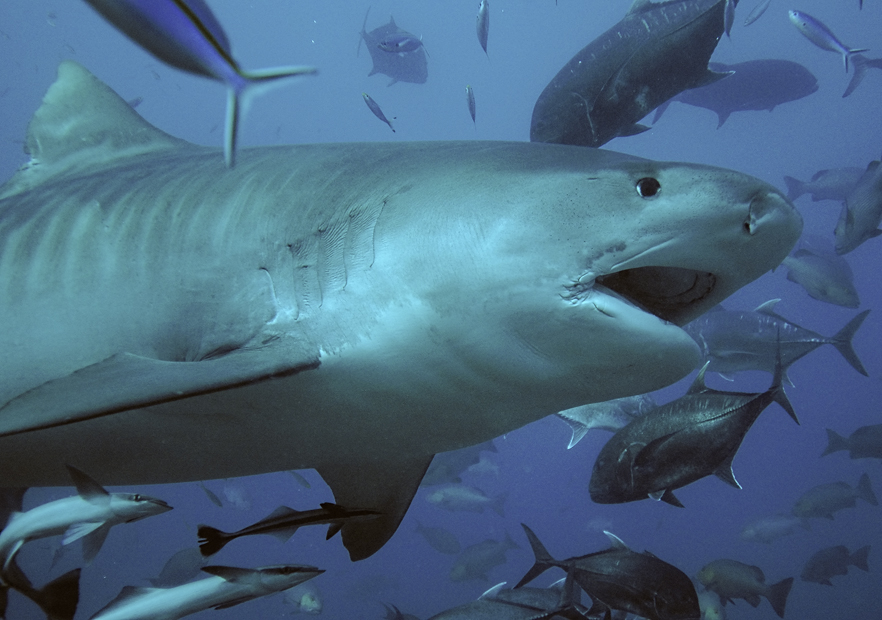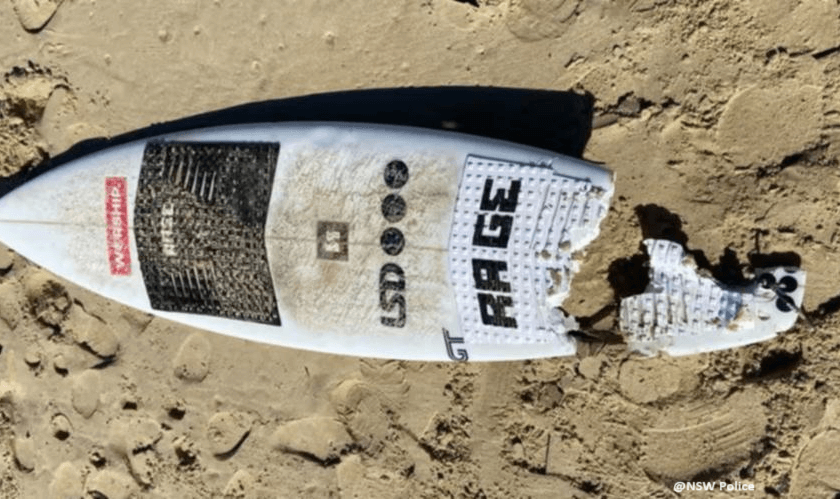A massive 17-foot-long white shark has been tagged in Nova Scotia.
Shark-tagging group OCEARCH hit bad weather during Expedition Nova Scotia 2020, but since weather cleared, the shark lift resumed an active schedule with 8 white sharks tagged.
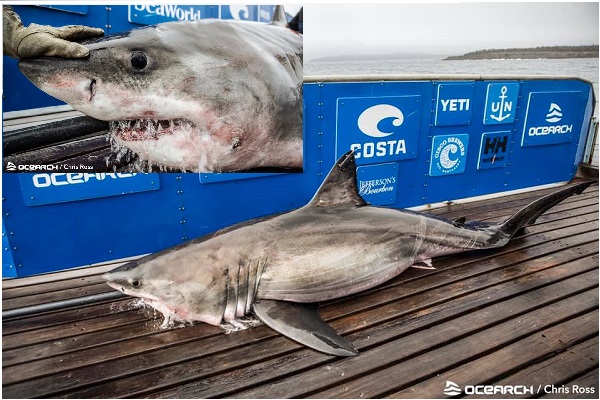
After facing three storms in three weeks, they finally caught a break in the weather and their first shark. As the fog cleared, so did a 12’ 9” long subadult 1,602 lb. female white shark as it was pulled out of the water for a science workup. The shark, named Acadia, made a strong swim off the lift and back into her waters.
The MV OCEARCH began fishing near Iron Bound island, where other sharks have been tracked on their global shark tracker. The group is looking for predictable access.
“Predictable access means we can come here and capture sharks predictably, like each year. So, if you’re going to invest in moving a ship and bringing a team of scientists somewhere, it’s worth that investment,” Expedition leader Chris Fischer said in his Explorer Log. “This is the third year in a row that Iron Bound Island has delivered.”
And they confirmed it the following day when the team had another hit on their bait and another shark on the lift.
Hirle, a 10’9” subadult male was sampled and tagged off Hirtle’s Beach. Shortly after Hirle was released, a larger male hooked.
Mature shark Mahone was next on the platform. The 1,700 lbs. 13’ 7” shark was named after Mahone Bay. The group was able to collect a large sperm sample and hopes the information will assist the science team in their reproductive study.
The following day, the largest shark the group has ever tagged in the North Atlantic made an appearance.
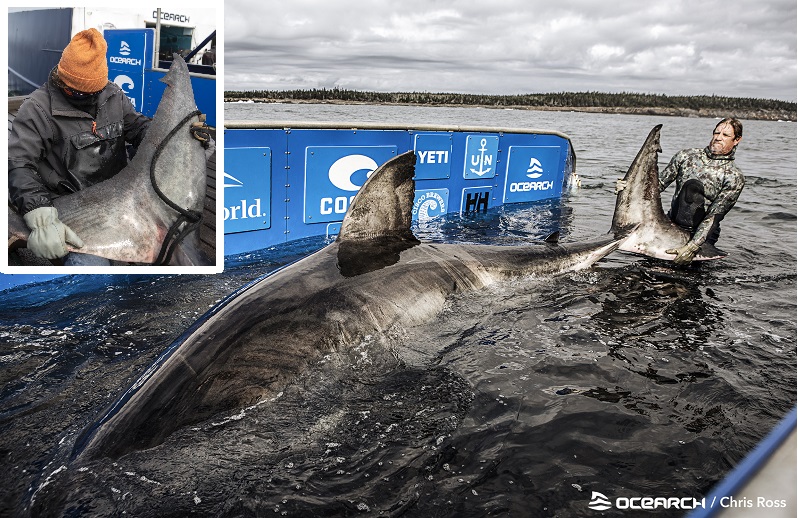
Nukumi, pronounced noo-goo-mee, was named in honor of the legendary wise old grandmother figure of the Native American Mi’kmaq.
The 3,541 lb. mature female measured in at 17’ 2” long and has been nicknamed the Queen of the Ocean.
“When you handle an animal of this size it will hit you in a completely different way from an emotional standpoint,” Fischer said. “You feel this awe and respect for the animal. Its ancientness, its wisdom. What it’s done to provide for is all.”
Fischer estimates the fish to be around 50-years old and to have experienced around 15 reproductive cycles and possibly birthed up to 100 sharklings.
The group believes the genetic samples taken from the massive shark will aid scientists, many who have not had access to samples from such a large fish.
Nukumi’s blood and other tissue samples are being stored and the data gathered will be open-sourced. Scientists from various disciplines will have access to the information for use in multiple ongoing research projects.
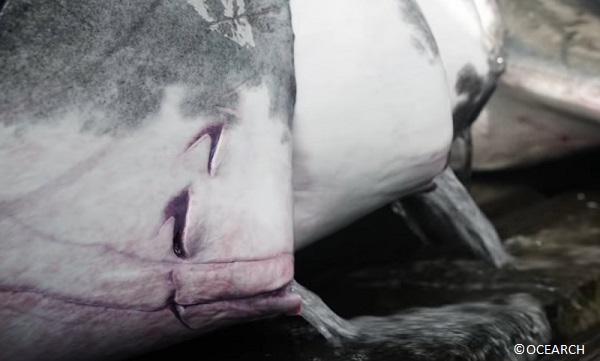
One very interesting find was observing the amount of scars present on the shark. Nukumi shows multiple bite marks on her gills, which could indicate recent breeding activity.
The shark’s tracks, along with the 7 other that have been tagged over the expedition, will soon be posted on OCEARCH’s website where anyone can track their movements.
Expedition Nova Scotia will wrap up in about a week, and the group will head south in hope of adding more data to the store it has on the north Atlantic white shark population.
